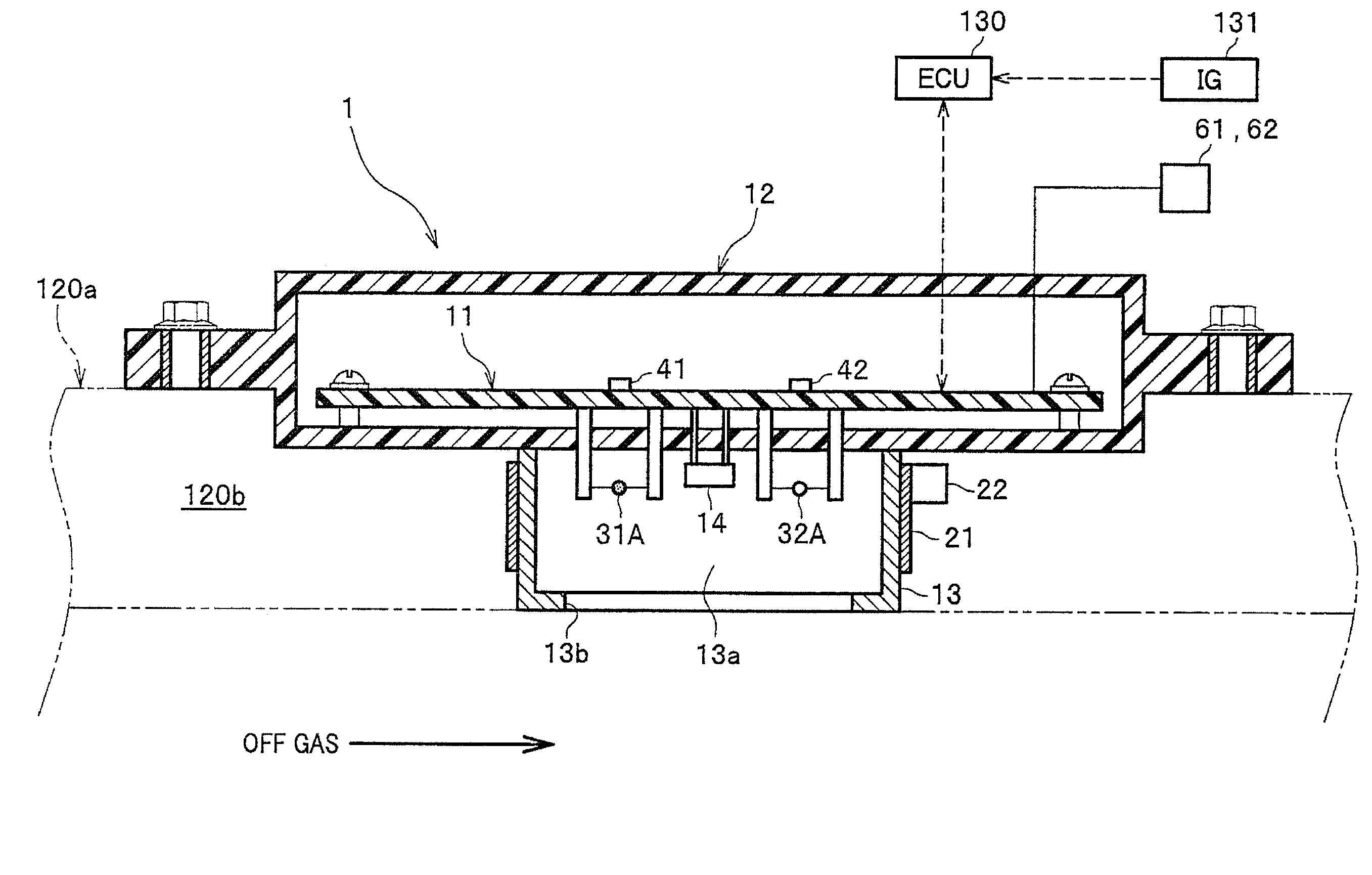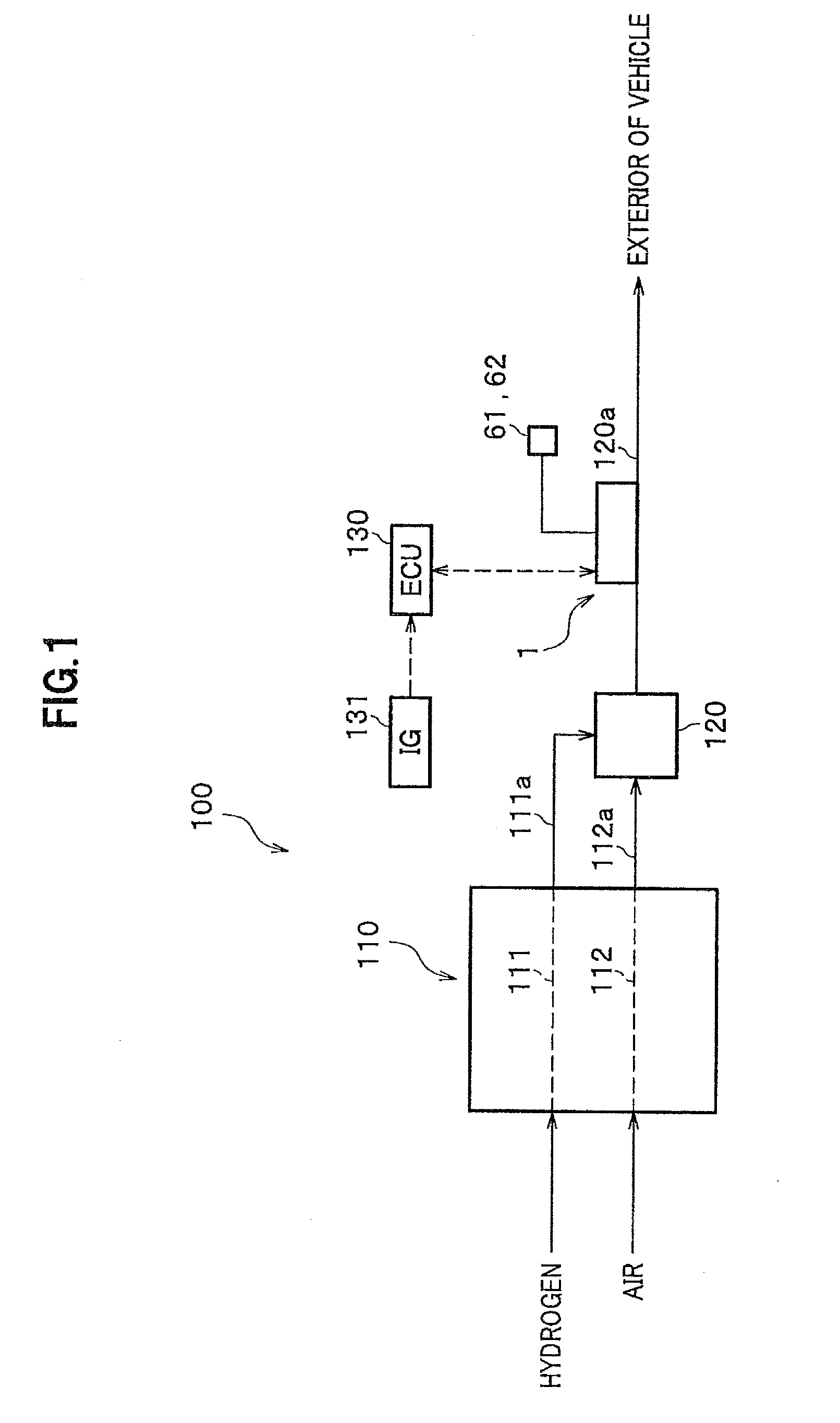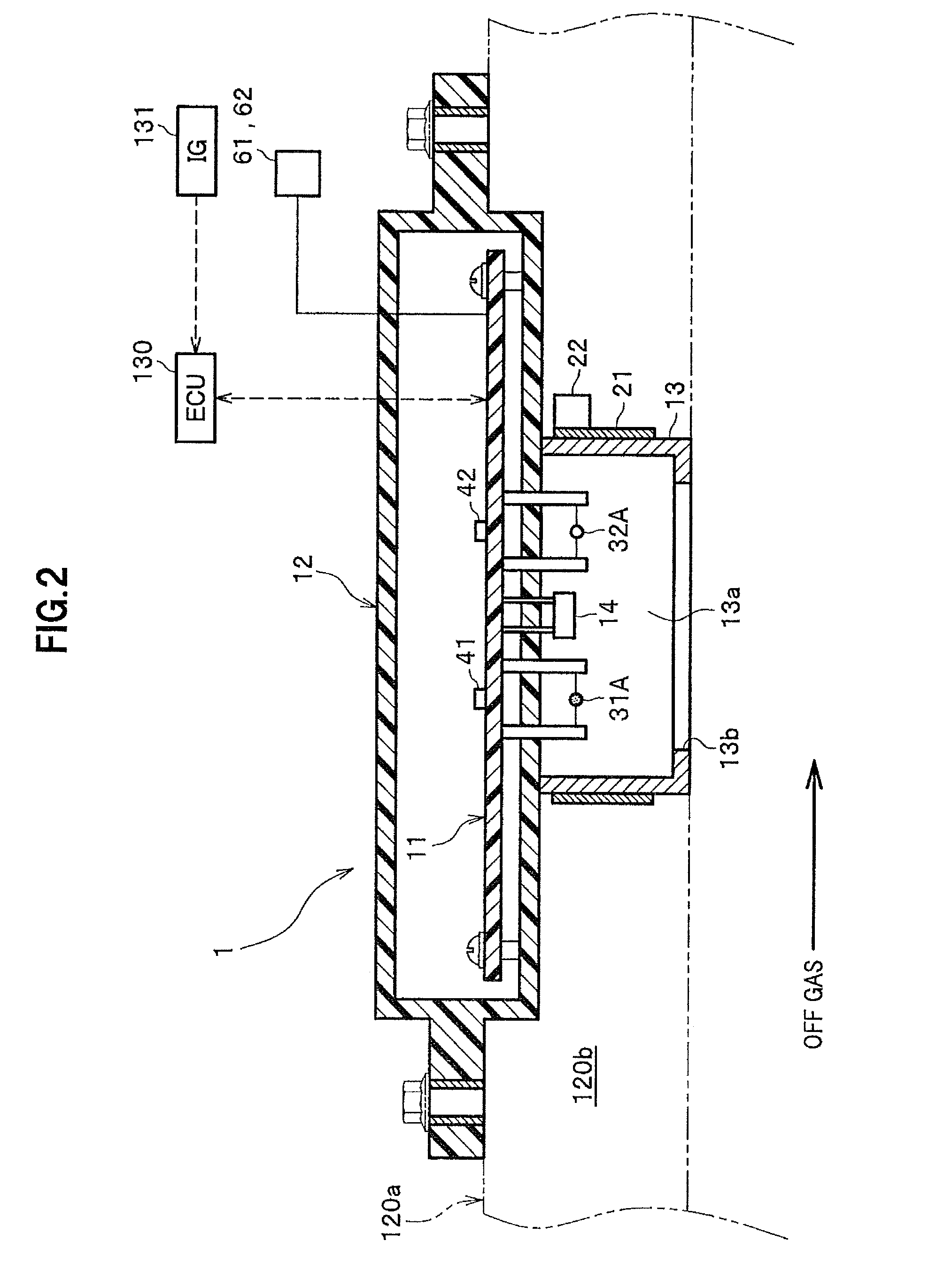Gas sensor
a technology of gas sensor and sensor, which is applied in the direction of electrochemical generator, specific gravity measurement, instruments, etc., can solve the problems of difficult to change the temperature and resistor value of the first detection element, become difficult to change the temperature and resistor value, etc., to reduce thermal interference, reduce thermal interference, and improve accuracy
- Summary
- Abstract
- Description
- Claims
- Application Information
AI Technical Summary
Benefits of technology
Problems solved by technology
Method used
Image
Examples
first embodiment
[0042]Hereinafter, with reference to FIGS. 1-8, a first embodiment of the present invention will be explained.
[0043]First, a fuel cell system 100 into which a hydrogen sensor 1 (a gas sensor) is integrated will be explained. The fuel cell system 100 is mounted on a fuel cell vehicle (a mobile unit), and is provided with a fuel cell stack 110 (a fuel cell), a dilutor 120, a hydrogen sensor 1, and an ECU 130 (Electronic Control Unit).
[0044]The fuel cell stack 110 is a Polymer Electrolyte Fuel Cell (PEFC), and is composed by stacking a plurality of single cells, each of which is made by sandwiching a Membrane Electrode Assembly (MEA) with separators (not shown). The MEA is provided with an electrolyte membrane (a solid polymer membrane), and an anode and a cathode for sandwiching the electrolyte membrane. A channel and a through hole which serve as an anode flow path 111 and a cathode flow path 112 are formed on each separator.
[0045]Also, when the hydrogen is supplied from a hydrogen t...
second embodiment
[0131]Next, with reference to FIG. 9, a second embodiment of the present invention will be explained. In addition, only different points from the first embodiment will be explained.
[0132]A hydrogen sensor 2 according to a second embodiment is provided with a normal detection element pair P3 which differs from the normal detection element pair P1. Also, for example, at the time of normal operation, the normal detection element pair P1 and the normal detection element pair P3 are alternately activated every predetermined time so as to increase lives of the normal detection element pair P1 and the normal detection element pair P3.
[0133]The normal detection element pair P3 is composed of a pair of a third detection element 31C and a third compensation element 32C. In addition, the hydrogen sensor 1 is provided with a third bridge circuit (not shown) like the first bridge circuit B1, and the third bridge circuit (not shown) is composed of the normal detection element pair P3.
[0134]A thir...
third embodiment
[0140]Next, with reference to FIGS. 10-11, a third embodiment of the present invention will be explained. In addition, only different points from the first embodiment will be explained.
[0141]A hydrogen sensor 3 according to the third embodiment is provided with a cross-shaped insulating member 15 which is made of a resin (e.g., polyphenylene sulfide. etc.). However, the insulating member 15 may be a corrosion-resistant metal (e.g., SUS, etc.).
[0142]The insulating member 15 is provided with a first wall 15a and a second wall 15b crossing at a mid points thereof in the horizontal plane. The first wall 15a extends between the normal detection element pair P1 and the reference detection element pair P2 in a direction parallel to the first arrangement direction D1 and the second arrangement direction D2. The second wall 15b extends between the first detection element 31A and the first compensation element 32A of the normal detection element pair P1, and between the second detection eleme...
PUM
| Property | Measurement | Unit |
|---|---|---|
| angle | aaaaa | aaaaa |
| temperature | aaaaa | aaaaa |
| concentration | aaaaa | aaaaa |
Abstract
Description
Claims
Application Information
 Login to View More
Login to View More - R&D
- Intellectual Property
- Life Sciences
- Materials
- Tech Scout
- Unparalleled Data Quality
- Higher Quality Content
- 60% Fewer Hallucinations
Browse by: Latest US Patents, China's latest patents, Technical Efficacy Thesaurus, Application Domain, Technology Topic, Popular Technical Reports.
© 2025 PatSnap. All rights reserved.Legal|Privacy policy|Modern Slavery Act Transparency Statement|Sitemap|About US| Contact US: help@patsnap.com



